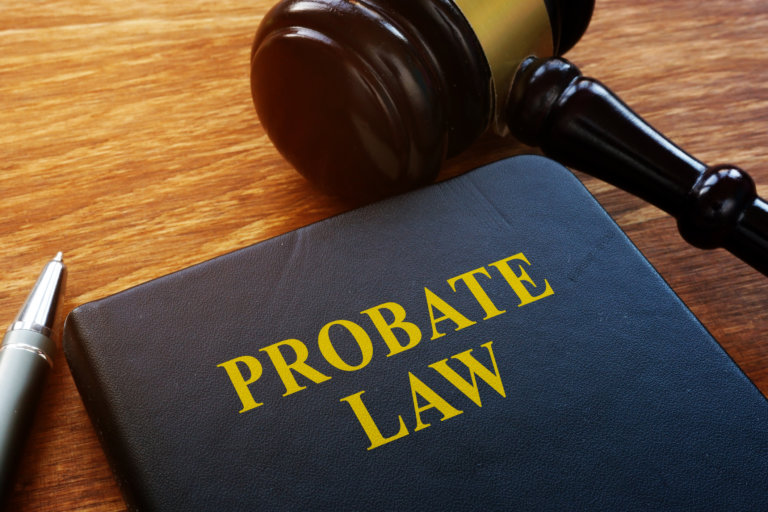When someone dies in Florida, their assets may have to go through a court-supervised process called probate. Nationwide, probate rules vary from one state to another, and Florida is certainly no exception. Understanding the state’s probate code, as well as the probate court’s required processes and procedures, are critical to ensuring that the estate’s assets are properly and efficiently distributed.
What Are the Rules for Probate in Florida? – Explaining the Process
Probate is the process wherein a court assesses the validity of a decedent’s last will and supervises the gathering of his or her assets, the paying of any outstanding debts and taxes, and the distribution of the remaining assets to the beneficiaries.
The process is carried out by the personal representative named in the will. If there is no will, the order of priority for the role of personal representative is the surviving spouse and after that, the person selected by the majority in interest of the heirs.
There are two main types of probate in Florida—Summary Administration and Formal Administration. There is also a non-court supervised means of distributing a decedent’s assets called Disposition without Administration (which is only available for small estates involving no real estate).
Formal Administration
Sometimes known as “regular” probate, Formal Administration applies to estates with a value exceeding $75,000 or in cases where the deceased passed away two years ago or less.
Considered the more complex type of probate in Florida, it is also the most demanding: The process begins with an initial filing of a Petition for Administration in the probate court. If the deceased left a will, the probate court will first have to validate the will to ensure that it follows the formalities of Florida law. The court then issues “Letters of Administration” permitting the personal representative to act on behalf of the estate.
Thereafter, the personal representative will be responsible for identifying and gathering the assets, notifying and paying creditors, and distributing what remains to the rightful beneficiaries. Throughout the process the personal representative must file required forms and documents, such as an inventory of the assets, proof that creditors have been notified and/or paid, and so on. The attorney for the estate is the one responsible for guiding the personal representative through this often unfamiliar process.
Summary Administration
Considered an expedited version of Formal Administration, Summary Administration may be utilized in cases where the total value of assets in the decedent’s estate is $75,000 or less or if the deceased passed away more than two years ago. The decedent’s primary residence is not included in the $75,000 threshold, as it is considered “exempt” property. Therefore, beneficiaries of the deceased’s estate may petition for Summary Administration if the deceased passed away less than two years ago leaving a primary residence and the rest of the deceased’s assets do not exceed $75,000.
As the name suggests, this type of probate is comparatively less costly, demanding, and time-consuming. However, it still has many of the same requirements, such as filing a petition in the probate court to initiate proceedings, authenticating the will, proving homestead (if applicable), etc.
Disposition Without Administration
As its name suggests, a disposition of personal property without administration permits the decedent’s beneficiaries to skip probate entirely. This process only applies to specific circumstances and smaller estates. It is not available if the deceased left behind any real property.
Rather, this process typically applies in matters where the value of the assets in the decedent’s estate is less than the decedent’s final expenses (i.e., end-of-life care, funeral, and burial costs). It is typically used to compensate a beneficiary for covering these costs.
Are All Assets Required to Go Through the Probate Process?
Not all assets are required to go through probate. Typically, administration is required only for assets that are either titled solely in the decedent’s name at the time of death or, if co-owned with someone else, lack a mechanism of automatic succession upon death (such as a “Lady Bird” Deed). Assets that have payable on death beneficiaries, such as life insurance or retirement accounts, typically do not have to go through the probate process. Common examples of assets that may have to go through probate in order for title (i.e., ownership) to transfer include real estate (owned individually or as tenants in common), bank accounts lacking joint ownership or a payable on death beneficiary, and vehicles.
How Long Does the Process Take?
Several factors determine the length of the process, such as the size of the deceased’s estate, the types of assets held in the estate, the number of probate v. non-probate assets, disputes involving creditors or even beneficiaries, etc.
A ballpark timeline though for Formal Administration—which is considered the lengthiest type of probate—is around six to twelve months, while Summary Administration typically takes around six to twelve weeks to complete. If the sale of real estate is involved in a Formal Administration, the personal representative may seek court approval of the sale so that the probate does not cause significant delays to the sale.
Do You Have an Estate That Needs to Go Through Probate in Florida? – An Expert Attorney from Farshchian Law, P.A. Will Guide You
One of the few certainties about probate, regardless of the type of administration, is that it is nearly always a smoother and more efficient process when you have an experienced Florida probate attorney by your side.
Farshchian Law, P.A. has an experienced legal team who understand Florida probate rules and have worked on proceedings of all kinds. We will work closely with you to understand the processes and procedures involved to successfully navigate a probate estate and will be your side to help with any challenges you face.
If you need assistance with a Florida probate estate, call Attorney Jennie G. Farshchian today at (800) 604-1871 or email Jennie@JFRealEstateLaw.com to schedule a free consultation.

